That line used to sound like something from science fiction.
A Netflix movie from Nigeria?
That was the subject of Davido’s lyrics and Twitter hashtags. But Not After Lionheart.
Lionheart is a landmark work. It was directed and also starred Genevieve Nnaji, a legendary figure, and was released in 2018. The movie marked a significant turning point for Nollywood internationally as it became the first Nigerian film to be purchased by Netflix as an original production. However, Lionheart encouraged further international investment in Nigerian storytelling and opened opportunities for Nollywood abroad. It remains a landmark in African cinema and a significant accomplishment for Genevieve Nnaji.
Nollywood isn’t just Nollywood anymore, it's out there, flourishing there, shows like Blood Sisters, Oloture and King of Boys and the current talk of the town “To Kill A Monkey”. Our domestic film business is expanding internationally, much like a resolute aunt who travelled overseas and returned with a different accent.
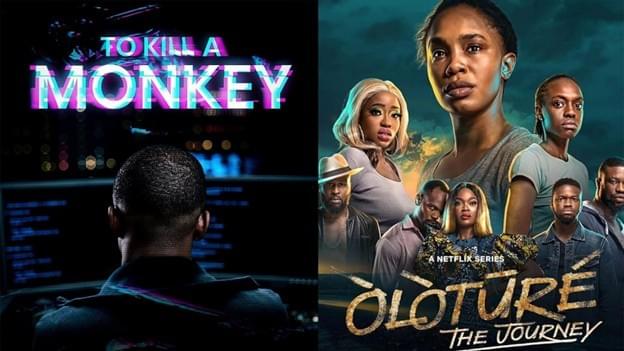
Let's be truthful. It is gradually becoming less common to hear the phrase "he died yesterday and resurrected today with a new actor's face." Netflix is bringing money. Higher-quality production, real lighting, and possibly even functional scripts are all part of that. Do you recall the days when films had 'Part 1-5' with unsteady fonts? We now have
Dolby Atmos sound, personalised fonts, and entire seasons.
Nollywood is not just telling stories; it’s looking good while doing it.
These aren't your typical popcorn films: Shanty Town, Blood Sisters, and Far From Home. Classism, corruption, spirituality, generational trauma, and Lagos traffic are all topics they are investigating. For the first time, Nigerian stories are being presented to audiences throughout the world with complexity, drama, and just the perfect amount of sarcasm. Some of the actors that we watched play roles in the Asaba and movies are now given prominent parts.
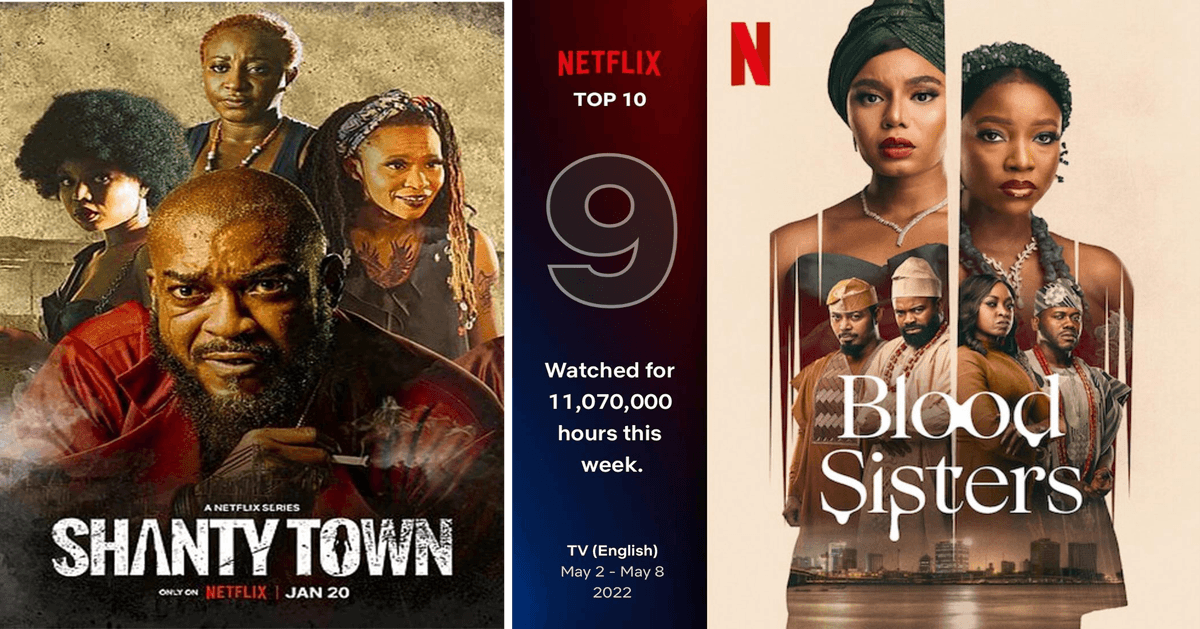
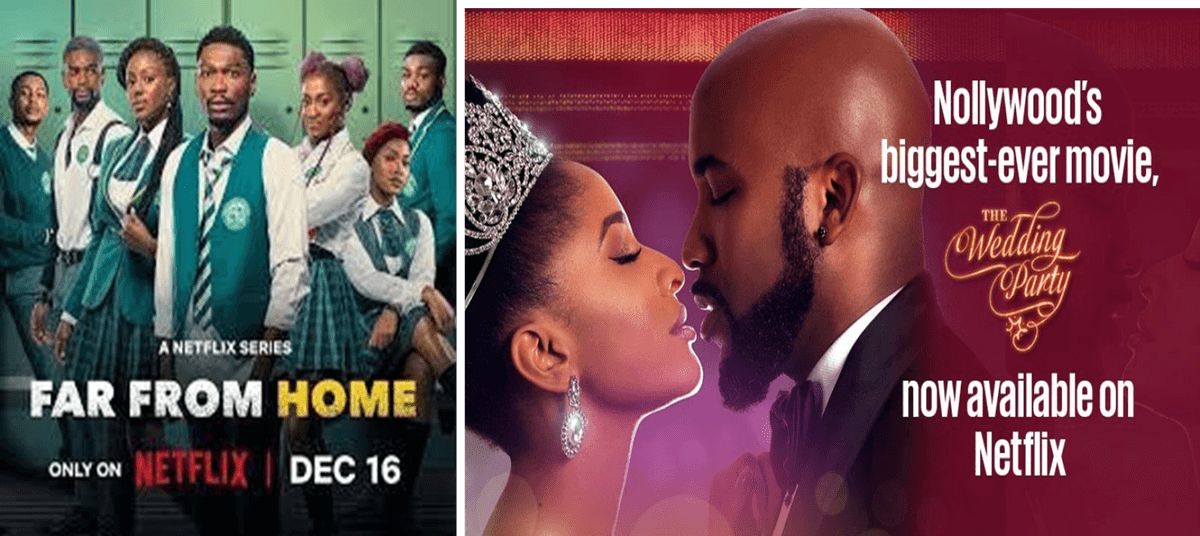
Legends like Nkem Owoh(Osuofia), Aki(Chinedu Ikedieze) And Paw Paw(Osita Iheme), etc, have all built their global presence in an astonishing way, while others have remained confined to a certain sector of Nollywood. These legends have built and expanded their careers to the global stage.
So let’s discuss a bit who helped define the Nollywood we grew up with….
Patience Ozokwor, Our Mama G, Our General, has built a career for herself in such a way that even if you wanted to ignore her growth and success, you would not be able to, from playing her popularly known roles as a hater in the Asaba movies, to popping up on our Netflix Accounts.
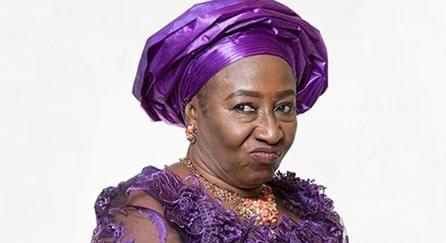
Writers, directors, costume designers, you name it, are all getting contracts, festivals, awards, and international clout. It’s not just about “blowing” anymore. These days, "blowing" isn't enough. It has to do with developing a career.
AKI AND PAW PAW Nobody can deny that these two have really given their all to Nollywood. They were funny, they were Chaotic, they were the Buzz, the Ronaldo and Messi of their time. I cannot even lie, they were among the best reasons that Asaba
Movies were well recognised, their creativity, their hunger and their drive
really shaped their careers and has gotten them to where they are now.
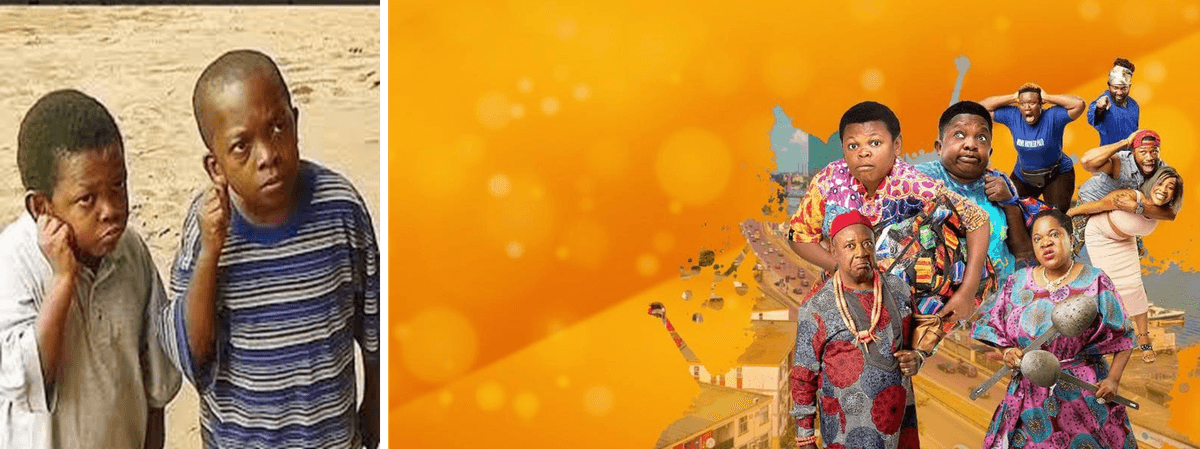
But let's be honest, there was a certain mood about vintage Nollywood. The sound effects were so chaotic, the wigs were ridiculous, and the dialogue? renowned. "The ogbanje spirit, fire, and thunder will fire you!" You are a regular goat, and I am a lion!
Despite its cleanliness, Netflix Nollywood occasionally seems a bit too polished. Some films begin to flatten, which makes Nigerian culture strange, noisy, contradictory, and authentic in an attempt to "translate" for the global audience. Yorubaproverbs start to seem overly detailed, which makes some of the scenes shout, "This is for our Oyinbo viewers”. Slick cinematography and global appeal have hidden away the wonderful disorder that made vintage films meme-worthy.
Ironically, local access to Nollywood is declining while it expands internationally. Particularly in rural areas, not everyone has access to Netflix. In Aba, Auntie Ngozi has to beg her neighbour for Wi-Fi and a password in order to watch Aníkúlá
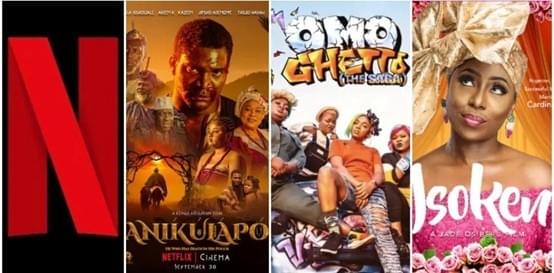
Meanwhile, pirated TikToks can only go so far, and the once-thriving DVD sector is now a thing of the past. These days, several stories seem to have been written for the West rather than for us. After watching a movie, did you find yourself asking, "Who is this for?"
Something is wrong when Lagos seems more like a prop than a character.
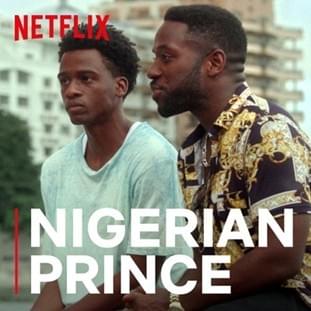
Just to give an example, when I watched this movie, I found myself asking, why do we have to act scenes like this, what message are we passing to our people, then i realised, this movie must not have been meant for us, For those of us that have watched it, from when the boy got to Nigeria to the end, What questions were you asking yourselves, in between scenes?
The fact is that we require services like Netflix. Nollywood is deserving of the funding, technology, and international acclaim.
However, we must also exercise caution. Not all stories need to be renamed to
make them more palatable. Drone shots and narrators with British accents are not necessary for every scene. The richness of our stories, the explosive uncles, the over-sabi aunties, and the tacit power of a side-eye at a wedding reception must be preserved.
From village shrines to global screens, Nollywood’s journey is both inspiring and complex. So let’s celebrate this moment. But let’s also remember what got us here: storytelling that didn’t wait for validation. That told the truth, sometimes badly lit, sometimes melodramatic, but always from the heart.
If Netflix is the new party, great. But let’s not forget the people who built the house.
Editor in chief
Reynolds mark
Assistant editor in chief
Walter Okoise
Project lead
Oliwia Klimczak
